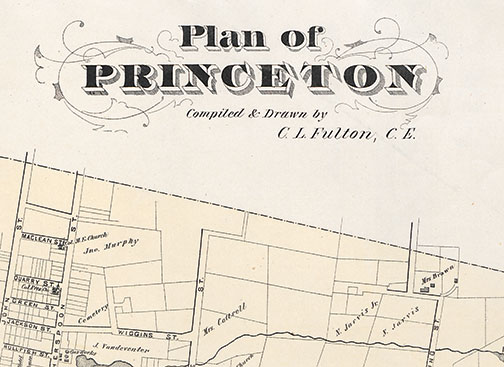In Short
Professor PAUL KRUGMAN, a Nobel laureate in economics and a New York Times columnist, drew a full house in McCosh 50 and two overflow lecture halls for an Oct. 6 lecture about Europe’s recent economic crisis. The renowned economist will be retiring from Princeton and joining the faculty of the Graduate Center of the City University of New York at the end of the academic year.
Among the lessons that Krugman said can be drawn from the European crisis: Policy should reflect what we have learned, not ignore it. “Against stupidity, the gods themselves contend in vain,” he said, referencing the philosophy of Friedrich Schiller. Policymakers have not just ignored much of what could have been learned from the last 80 years, Krugman said; they’ve also ignored lessons from the past five years to avoid another recession.
The University has created the Center for Statistics and Machine Learning, designed for students of any major who have a strong interest in DATA ANALYSIS and its application across disciplines. Students can earn an undergraduate certificate. John Storey, a professor of molecular biology and the center’s director, said it’s important for students to be able to “become literate in data analysis, regardless of what your major is.”
A new University staff member will advise faculty and student INVENTORS AND ENTREPRENEURS on finding commercial uses for their research and helping them to create startups. W. Bradford Middlekauff began work last month as the first executive in residence at the University’s Office of Technology Licensing. Middlekauff previously worked at technology-related spinoff companies at Yale and Dartmouth.
Through Jan. 25, the Main Gallery in FIRESTONE LIBRARY is presenting “Nova Caesarea: A Cartographic Record of the Garden State, 1666–1888,” commemorating the 350th anniversary of the naming of New Jersey. From Colonial times through the 19th century, these maps — including coastal charts, road maps, early state maps, and New Jersey’s first county atlases — have charted the history of the state and its people. A companion online exhibition is at http://library.princeton.edu/njmaps.














No responses yet